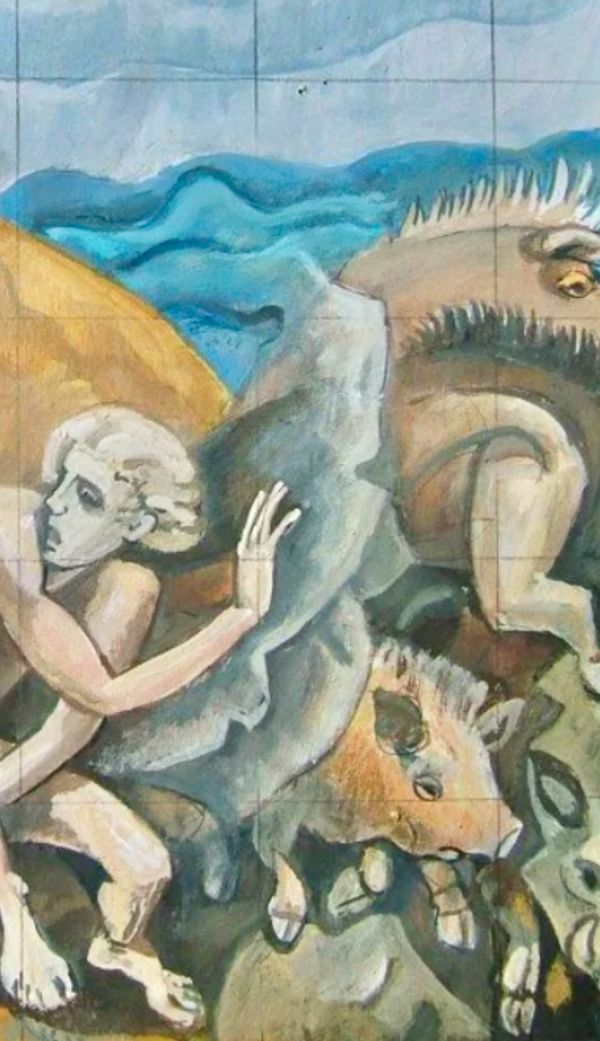(Mk 5:1-20)
In all religions, man is invited to bind himself to divine consent to receive light and strength, submitting to his authority.
The dilemma of Mk’s Roman assemblies - reflected here - is whether to close or vice versa open the circuit of the sacred.
And whether to customize, or step back and repeat.
The passage associates the icons of the sea, the cemetery, the wandering possessed man, and imperial soldiers.
The optics is that of our baptismal purification in Christ, which drowns impurities and germs of death.
In Semitic literature, the image of «sea» alludes to disordered forces, aimlessly and not in accordance with God's project on man.
Powers that generate chaos in our existence.
«Cemetery» is the bitter panorama of a world that loses the foundation of its being and becoming.
Ambit assiduously forced to groping... to solve problems and not permanently lose the vitality-wave.
«Pig» [symbol of paganism] is a figure of that kind of irremediable contamination that prevented the human being from having a relationship with God - and feeling his welcome.
«Legion» is the name of every power (here religious, political and military) that stifled the yearning for happiness, producing bewilderment, marginalization, inner division.
Milieu and determining factor of processes that worsened the same congenital indigencies.
Imperial ideology was threatening and destructive. It leveraged on people's fears in order to subdue consciences.
This was the situation of persons - crumbled inside - before Jesus arrival.
The legions then ideologically manipulated popular beliefs related to demons - to shatter singular personalities, and accentuate the complacency of the already oppressed masses.
Conversely, in the experience of life’s victory over death, early Christian communities gained breath of Faith and a return to oneself - as a soul therapy.
They experienced a kind of disproportion and self-control, despite defeats in preaching.
The ancient assembly that once had the horror of contaminations began to open the doors of the purist ghetto, making everyone participate.
The church broke away from common beliefs in the capital of the empire, which transmitted perverse competitions, and to the weak a feeling of mortifying awe - lack of autonomy and conscience.
Of course, the first heralds immediately realized that the new sense of freedom produced a double attitude: the oppressed man does not always want to be freed from his alienations and torments.
Jesus fascinates and consternates. He precipitates inconsistent bonds, and common idols.
His Message is decisive and beneficial, but it forces us to upset habits, purposes, and every closure.
To internalize and live the message:
From what alienating power has the Faith in Christ saved you?
What amazing specimenity belongs to you?
[Monday 4th wk. in O.T. February 3, 2025]












